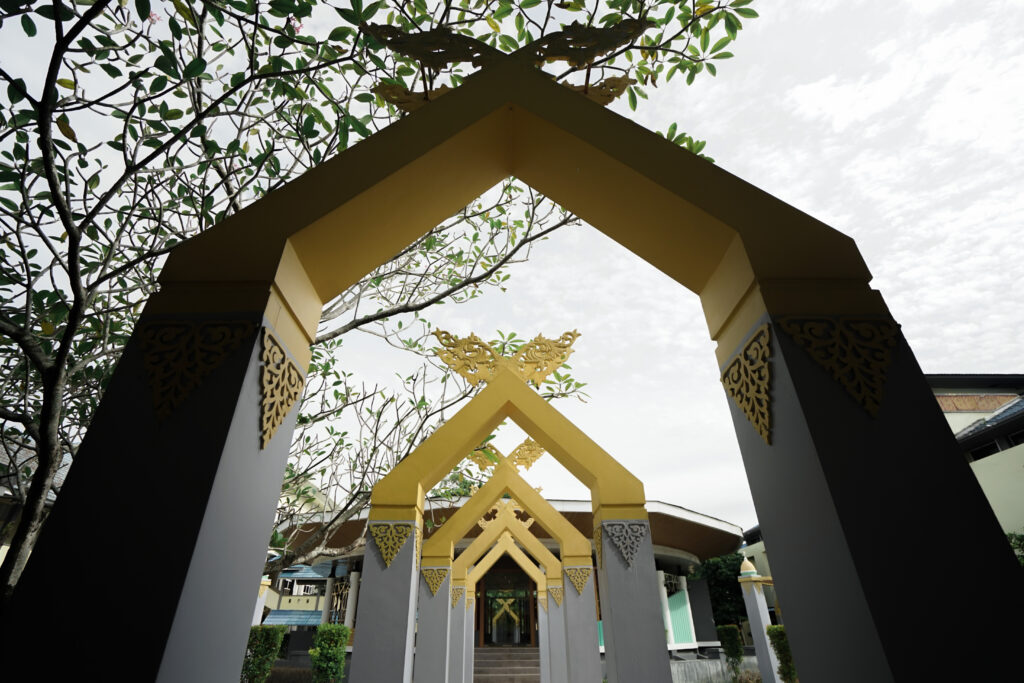Development Economics
Development Economics is a part of Economics that specifically studies development issues that have been, are being or will be happening in developing countries. The development covers industry, banking, finance, and business. In addition, the Development Economics study program also analyzes various economic issues to then seek and find solutions to various economic problems critically, creatively and innovatively.

Vision
“Becoming a superior study program in the field of Development Economics with a global orientation based on faith and piety”
Mission
- Apply the contents of the Koran and As-Sunnah
- Organizing Development Economics education with a global perspective based on faith and piety
- Carrying out research and development of economics with an international reputation based on faith and piety
- Carrying out community service in the field of Development Economics with values of well-being based on faith and piety
- Organizing Islamic da’wah bills of wisdom, bills of speech, bills of qalam, and bills of things
- BilQalam and bil Hal
Graduate Profile
1. International Business Economics Analyst and Practitioner
Graduates are able to formulate international, cross-country and regional business strategies, are able to identify problems and opportunities and make recommendations for solving problems in international business activities using economic theory and knowledge.
2. Islamic Economics and Banking Analysts and Practitioners
Graduates who are able to apply economics empirically in the fields of Islamic finance and banking.
3. Regional Economic and Financial Analyst and Practitioner
Graduates have the expertise to analyze local sectors that are strategically competitive, and are able to analyze finances within central and regional agencies.
4. Entrepreneur
Graduates who have entrepreneurial skills who think creatively and innovatively and are able to take business opportunities that are needed and wanted by the market.
Download File
Learning Outcomes
Graduate learning outcomes are abilities acquired by graduates through internalization of knowledge, attitudes, skills, competencies, and work experience accumulation.
Skill:
- Able to master communication skills to analyze, think logically and critically both orally and in writing
- Have the ability to plan the Regional/State Revenue and Expenditure Budget
- Have the ability to become micro, small and medium entrepreneurs and be able to compete in the business world.
- Able to predict and predict foreign exchange rates from international currencies
- Have the competence to work as a broker in the capital market
- Able to implement Islamic economics
- Able to create and analyze finance within the central and regional agencies
- Able to carry out a process of preparing stages involving various elements for the utilization and allocation of existing resources
- Able to apply economics empirically in the field of finance and Islamic banking
- Able to apply economics empirically in the field of fiscal policy and monetary policy.
- Able to apply the field of economics expertise and utilize science and technology to solve policy-related problems
- Able to apply economics empirically in the field of fiscal policy and monetary policy.
Knowledge :
- Mastering the philosophy of economics by internalizing Islamic values;
- Mastering the theoretical concepts of macroeconomics, microeconomics and applied economics;
- Mastering the concepts, methods and tools of economic analysis;
- Mastering the concept of planning and formulating economic policies and regulations;
- Mastering the concepts and principles of entrepreneurship;
- Mastering the concept and application of economic research methods;
- Mastering economic and business ethics;
- Understand the dynamics of global, national and local economic changes;
- Mastering at least one international language;
- Mastering concepts and issues in the field of economics and business
- Mastering the concept of calculating national income
- Mastering economic analysis tools and applying them in regional policies
- Mastering the calculation of regional original income and knowing the sources of regional original income
- Mastering regional economic problems and able to find solutions.
- Mastering banking and non-banking concepts and payment systems
- Mastering the utilization of existing resources in supporting the welfare of society


